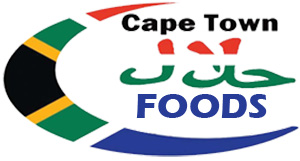Cape Town Halal Foods is a muslim family owned family business established in 2008 providing the hospitality industry, weddings, parties, funerals and conferences in Cape Town and the Western Cape with great tasting Halaal Platters, Foods and Biltong.
Also known as Cape Town Halaal Platters Try Cape Town Halal Platters for Quality Home Made Products.
We deliver anywhere in Cape Town and surrounds. We do not compromise on quality. Strictly deliveries only. Cape Town Halal Platters cater various food dishes for office functions, conferences, parties, weddings and other events.
With the onset of the Covid pandemic most of the events and gatherings that requires catering was postponed. For this reason we decided to take our products online and one thing led to another. We realized that there is a need for quality halal products online.
We put our trust in our Creator and hope that this will be the new successful chapter in our business.
The Importance of Halaal Food in South Africa
The Importance of Halaal Food in South Africa
South Africa’s rich cultural and religious diversity is what makes the country unique, and within this vibrant tapestry, halaal food plays a vital role. For the Muslim community, halaal food is not just a dietary choice; it is a reflection of values that merge spirituality with ethical consumption. As such, halaal food helps foster inclusivity within South Africa’s multicultural society.
The term “halaal” originates from Arabic, meaning permissible or lawful under Islamic law. For food to be considered halaal, it must meet specific guidelines—such as ensuring the exclusion of pork and alcohol, and that animals are slaughtered humanely while invoking Allah’s (God’s) name. This process highlights religious devotion while also focusing on ethical issues like animal welfare and environmental responsibility.
From a practical standpoint, research has shown that the halaal method of slaughter offers health benefits. One important aspect is the complete draining of blood from the animal, which reduces the risk of bacterial growth. Blood can be a breeding ground for harmful bacteria, increasing the chances of infection and other health issues. By ensuring that most of the blood is removed, the halaal process helps reduce these risks, promoting consumer health. Moreover, meat prepared according to halaal standards typically stays fresh longer due to the lower blood content, helping to minimize spoilage and bacterial contamination.
In South Africa, halaal food is an integral part of daily life, particularly in cities like Cape Town, Durban, and Johannesburg. During family gatherings or religious events like Eid, halaal food represents not only faith but also trust in the purity and integrity of the food consumed.
Beyond the Muslim community, the availability of halaal-certified food has significantly expanded across the country. Restaurants, supermarkets, and fast-food outlets now offer halaal options, making it accessible to a wider audience. This inclusivity helps bring together people from diverse backgrounds, fostering social cohesion and promoting mutual understanding and unity.
The halaal food industry is also an important contributor to South Africa’s economy. It generates jobs, supports entrepreneurship, and plays a key role in charitable efforts, such as providing meals to the less fortunate during Ramadan and other initiatives within the Muslim community.
Halaal food is more than a set of dietary regulations; it is a manifestation of core values that connect individuals to their faith and ethical principles. As South Africa continues to grow as an inclusive society, respecting halaal practices strengthens bonds between communities and encourages greater mutual respect and understanding.
